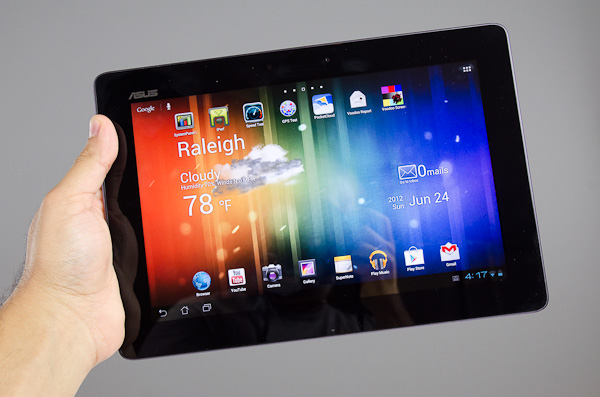 Qualcomm's Snapdragon chips are
used in Android, Windows Phone and Blackberry devices
Qualcomm's Snapdragon chips are
used in Android, Windows Phone and Blackberry devices
Smartphone chip designer Qualcomm has
confirmed it continues to be unable to meet demand for its latest generation of
Snapdragon processors.
The US company's "28 nanometre" chips are used in bestselling Android devices
including the Samsung Galaxy S3, HTC One X and Sony Xperia SX.
It first reported the shortfall in April, admitting it had underestimated
appetite for the product.
The shortage is causing knock-on problems for manufacturers.
"It's slowing down production rates for a lot of the current Android models
and is leading to a number of companies having to delay or scale down production
of next generation models," Chris Green, principal technology analyst at Davies
Murphy Group Europe, told the BBC.
"The problem is that if companies can't source enough of the chips they can't
ramp up production lines to the speeds necessary to make them
cost-productive."
"One company that I know has been affected is Asus and its Padfone."
The Taiwanese firm told the
Verge
tech site in May that it was experiencing shortages of Snapdragon S4
chips.
Qualcomm's disclosure coincided with its third quarter earnings. It reported
$1.2bn of net income, 15% higher than the previous year.
Year end target
Qualcomm adapts processor designs by ARM Holdings and adds its own wireless
data technologies, but outsources production to others.
After supplies from Taiwan Semiconductor Manufacturing Company fell short of
demand, it sought alternative manufacturers and said it now had "four
sources".
 The Asus Padfone if one of the
products affected by the Snapdragon chip shortage
The Asus Padfone if one of the
products affected by the Snapdragon chip shortage
"We continue to be supply constrained of our 28 nanometre products but are
ramping supply with multiple foundries," said the company's chief operating
officer, Steve Mollenkopf, in a transcript of an analyst briefing posted to the
financial
news site Seeking Alpha.
"We currently project that we'll be able to closely match supply with demand
as we exit the calendar year".
Future threats
Analysts also questioned Qualcomm's executives about Samsung's recent
takeover of two businesses specialising in connectivity technologies - the
mobile phone division of the UK's CSR and Sweden's Nanoradio.
Samsung's mobile phone chips - used in both its Galaxy handsets and Apple's
iPhones - currently incorporate Qualcomm-designed elements. But the move could
cost the Qualcomm business if its South Korean customer developed its own
alternatives.
"I think the key way to combat that, as we've done all along, is to continue
to drive the technology hard," responded Qualcomm's chief executive Paul
Jacobs.
"We're driving it very rapidly on a number of areas... it used to be just the
radio, but now it's also processor and graphics technology.
"Do people for their own internal uses have enough scale to invest at the
same rate we do? The answer is generally no."
Corruption investigation
The firm also provided an update on a continuing US investigation into its
business after a whistleblower's claims.
"[We] have informed the Securities and Exchange Commission and the Department
of Justice of instances in which special hiring considerations, gifts or other
benefits were provided to several individuals associated with certain Chinese
state-owned companies or agencies," said Qualcomm's vice president of investor
relations, Warren Kneeshaw.
"Based on the facts currently known, we believe that the monetary value of
these benefits in aggregate to be less than $250,000, excluding employment
compensation.
"We're continuing to co-operated with these investigations, but are unable to
predict their outcome."














